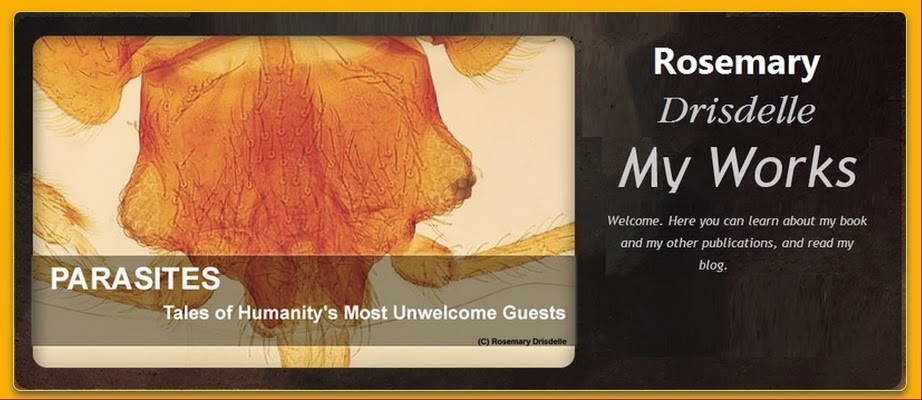Heirloom Parasites
 |
|
Homo erectus, a human ancestor, had some of
the same parasites we have today. Reconstruction
by John Gurche; photographed by Tim Evanson.
CC SA 2.0
|
Souvenir Parasites
Other parasites are generalists: they infect humans regularly but they can also infect other animals and do so whenever the opportunity presents itself. Some of these may be heirloom parasites that spread from humans. Others likely infected other species first and crossed to humans later. These last, along with parasites that only infect humans rarely and by accident, are our “souvenirs.”
Both of these things are intriguing when you think about it: that over the course of , perhaps millions of years, we never failed to – unintentionally - give our heirloom parasites what they needed to survive; and that we are still picking up new souvenirs today, in numerous unplanned, unobserved, unexpected ways. It says a lot about the devilishly unbreakable life cycles of parasites.
Interesting reading:
Araújo, Adauto, Luiz F. Ferreira, Karl J. Reinhard et al. 2008 “Parasites as Probes for Prehistoric Human Migrations?" (galley proofs) Natural Resources, School of Papers in Natural Resources, University of Nebraska – Lincoln.
Araújo, Adauto and Luiz Fernando Ferreira. 2000 “Paleoparasitology and the Antiquity of Human Host-parasite Relationships.” Memórias do Instituto Oswaldo Cruz On-line. Suppl. 1 Nov.

No comments:
Post a Comment